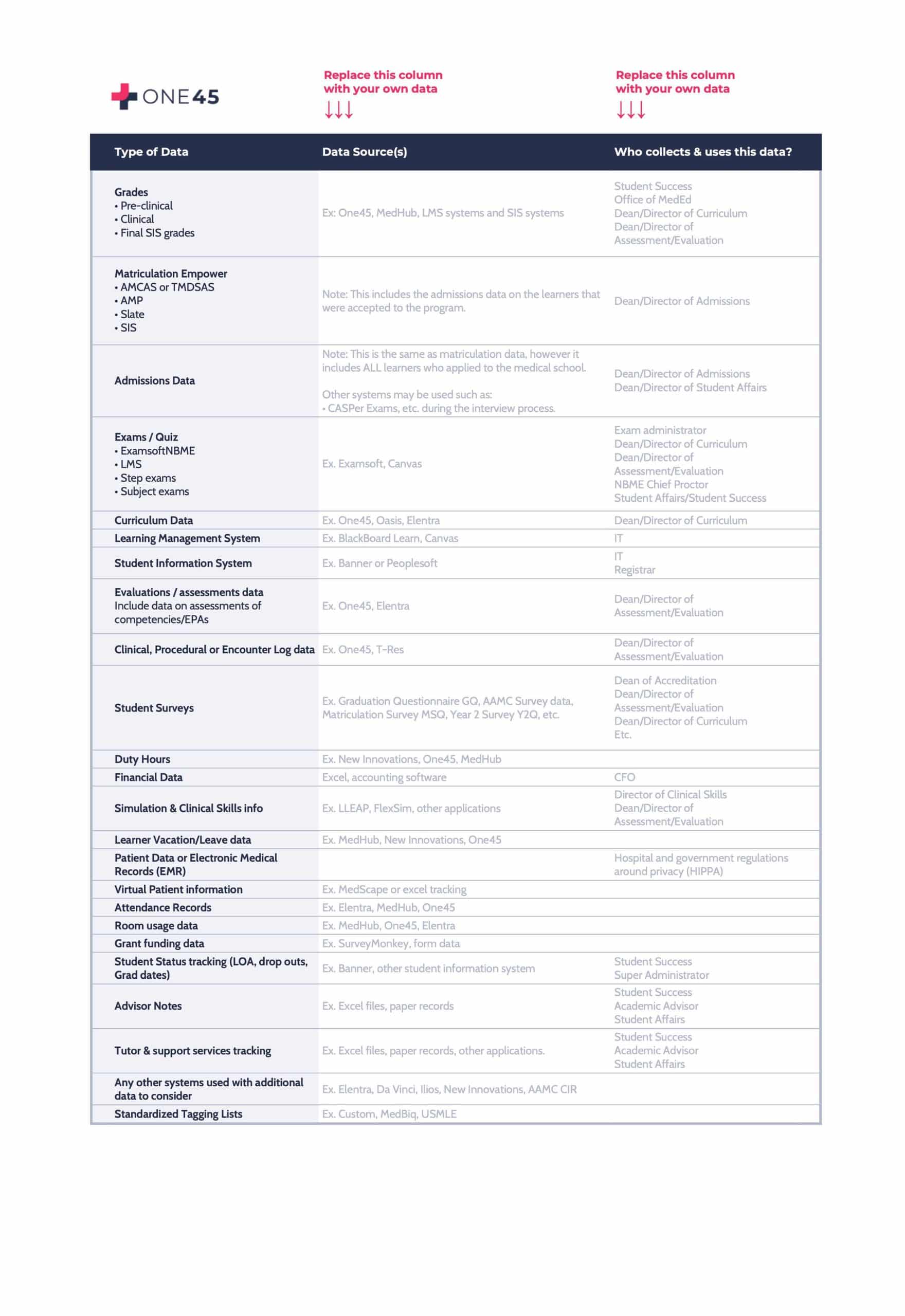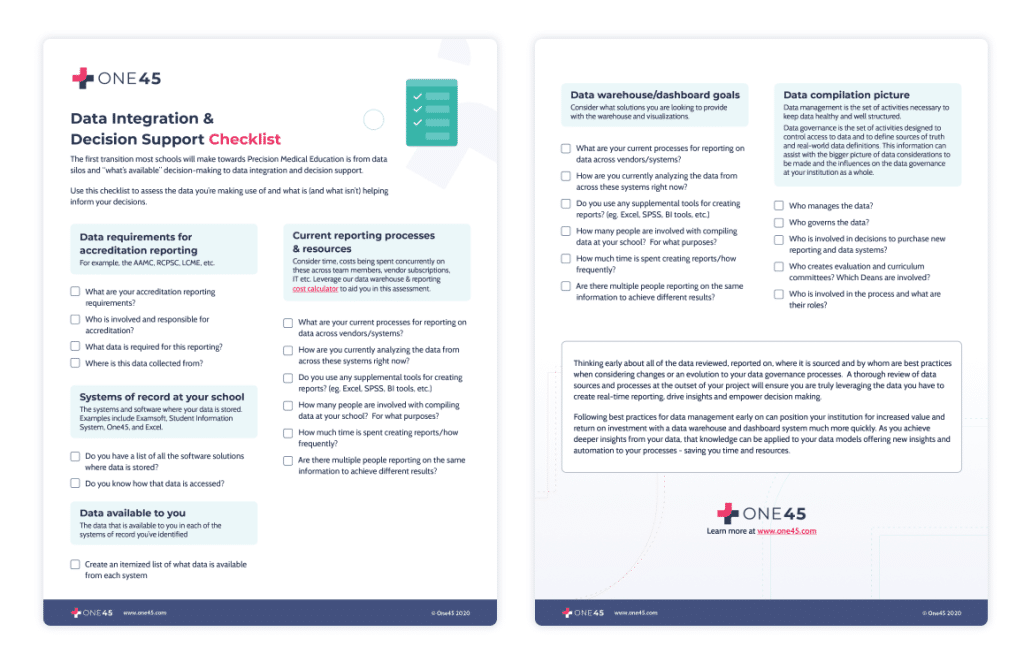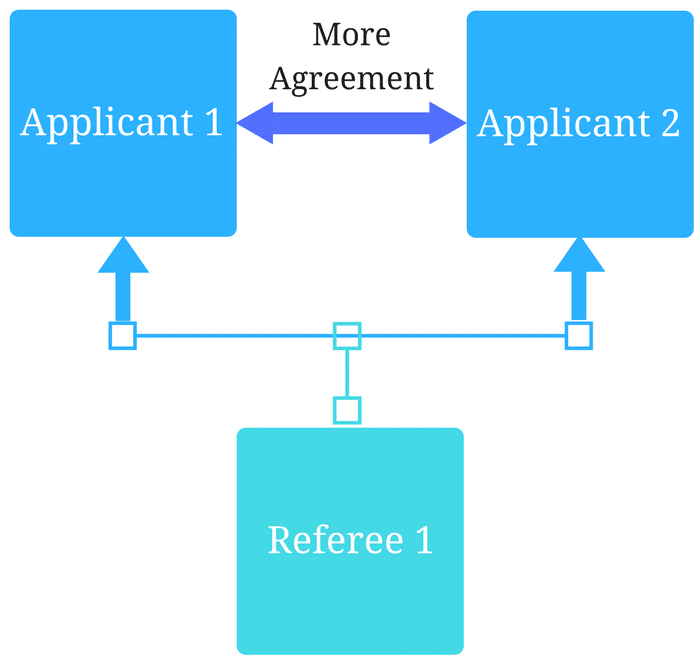Data Integration and Decision Support Checklist for Medical Schools

September 25, 2025
The first transition most schools will make towards enabling Precision Medical Education is to work towards eliminating data silos and “what’s available” decision-making, and progressing towards integrated data that enables better real-time decision support.
For medical schools considering a data transformation project, we’ve prepared this checklist to help you assess the data you have and the data you’re actually using to inform decisions. We hope you find it helpful.
Accreditation Reporting: What You Need to Know
For example, the AAMC, RCPSC, LCME, etc.
- What are your accreditation reporting requirements?
- Who is involved and responsible for accreditation?
- What data is required for this reporting?
- Where is this data collected from?
Identifying Systems of Record
The systems and software where your data is stored. Examples include Examsoft, Student Information System, Acuity, and Excel.
- Do you have a list of all the software solutions where data is stored?
- Do you know how that data is accessed?
Assessing Data Availability
The data that is available to you in each of the systems of record you’ve identified
- Create an itemized list of what data is available from each system

Download this data sources table to track where your medical school’s data resides.
Evaluating Current Reporting Processes
Consider time, costs being spent concurrently on these across team members, vendor subscriptions, IT, etc. Leverage our data warehouse and reporting cost calculator to aid you in this assessment.
- What are your current processes for reporting on data across vendors/systems?
- How are you currently analyzing the data from across these systems right now?
- Do you use any supplemental tools for creating reports? (eg., Excel, SPSS, BI tools, etc.)
- How many people are involved with compiling data at your school? For what purposes?
- How much time is spent creating reports/how frequently?
- Are there multiple people reporting on the same information to achieve different results?
Setting Data Warehouse and Dashboard Goals
Consider what solutions you are looking to provide with the warehouse and visualizations.
- What sparks the interest in reviewing your data goals now and from who?
- Are there are existing dashboards or visualizations with limitations?
- What types of decision support are you looking to achieve? (e.g., student progression, CQI, student support services, course and clerkship reviews, easier exam result reporting, etc.)
Strengthening Data Governance and Management
Data management is the set of activities necessary to keep data healthy and well structured.
Data governance is the set of activities designed to control access to data and to define sources of truth and real-world data definitions. This information can assist with the bigger picture of data considerations to be made and the influences on the data governance at your institution as a whole. Consider the following:
- Who manages the data?
- Who governs the data?
- Who is involved in decisions to purchase new reporting and data systems?
- Who creates evaluation and curriculum committees? Which deans are involved?
- Who is involved in the process and what are their roles?
Thinking early about all of the data reviewed, reported on, where it is sourced and by whom are best practices when considering changes or an evolution to your data governance processes. A thorough review of data sources and processes at the outset of your project will ensure you are truly leveraging the data you have to create real-time reporting, drive insights, and empower decision making.
Following best practices for data management early on can position your institution for increased value and return on investment with a data warehouse and dashboard system much more quickly. As you achieve deeper insights from your data, that knowledge can be applied to your data models offering new insights and automation to your processes – saving you time and resources.
Here is a 

Related Articles

How interviews could be misleading your admissions...
Most schools consider the interview an important portion of their admissions process, hence a considerable…
Reference letters in academic admissions: useful o...
Because of the lack of innovation, there are often few opportunities to examine current legacy…
